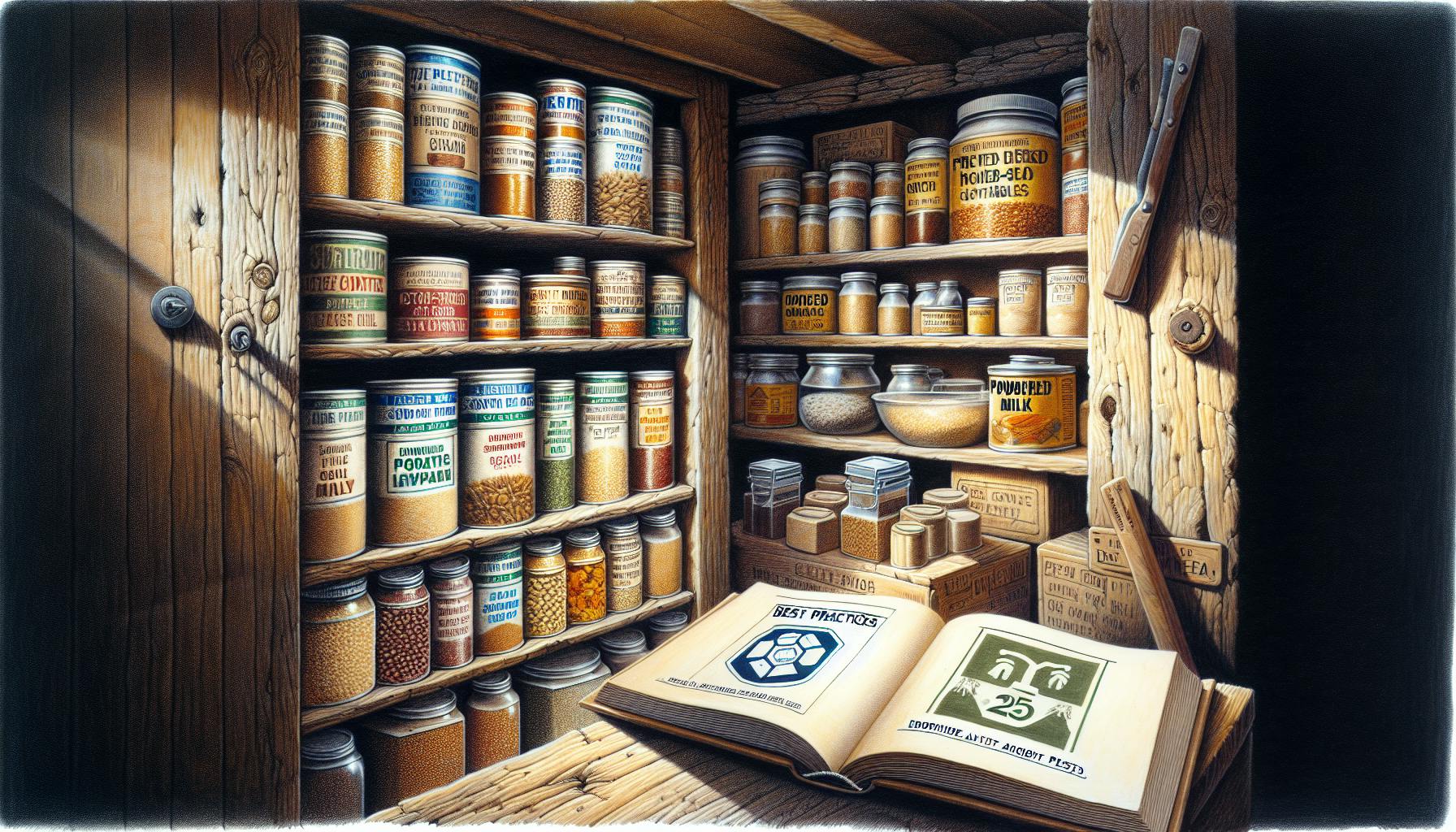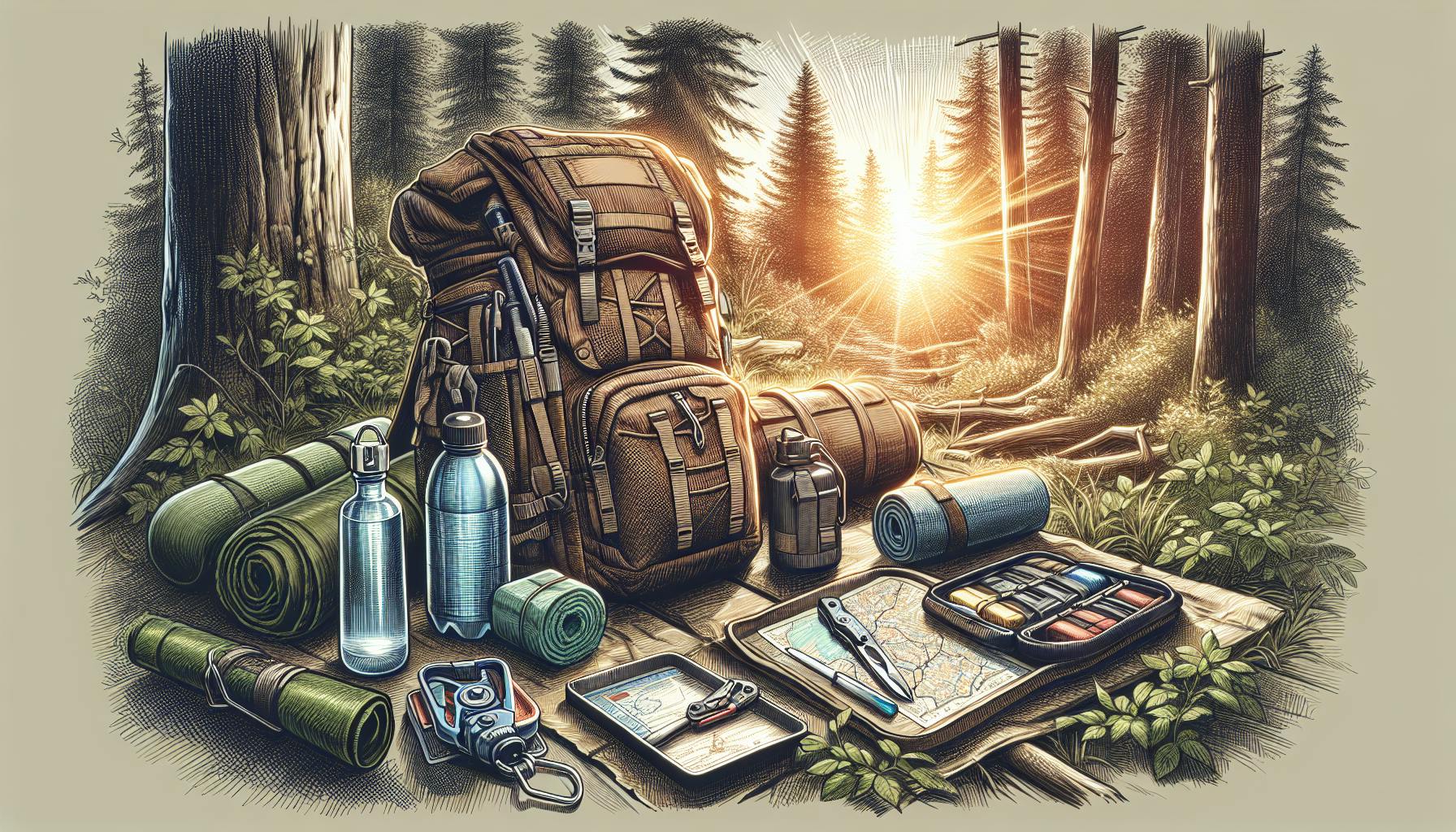Introduction
Having a well-stocked emergency kit with ample food and water is crucial preparation for every household. From natural disasters to grid-level power outages, you never know when an emergency situation may arise that disrupts normal access to fresh food. Canned goods are an affordable, nutritious, and practical option to stock up on for your emergency food supply.
When building your emergency food stockpile, focus on nutrient-dense canned goods with a long shelf life that provide versatility to create different meals. The goal is to store at least a 72-hour supply of canned goods per person - ideally 2-4 weeks worth. Stock up on canned fruits, vegetables, beans, soups, and meats to form the base of your emergency food prep. Supplement with cereals, granola bars, powdered milk, freeze-dried entrees, and comfort foods.
This article will explore the best canned goods to include in your emergency kit, with a focus on nutrition, shelf stability, and versatility. Proper storage and inventory management will also be covered to help you stock up and eat well no matter the circumstances. Having the right canned goods on hand provides peace of mind that you can sustain yourself and your family during emergencies.
Top Canned Fruits
Fruit packed in its own juice or water provides quick energy and morale boosts during stressful times. Focus on budget-friendly options with 5+ years of shelf life.
-
Pineapple - Chunks or slices packed in juice add vitamin C. Del Monte has a 5-year shelf life.
-
Mandarin oranges - Easy to eat straight from a pop-top can. Look for Dole mandarins in light syrup.
-
Fruit cocktail - Adds variety with bite-sized peaches, pears, grapes, and cherries bathed in juice.
-
Applesauce - Shelf-stable apple sauce from Musselman's has added vitamin C. Buy individual serving pouches.
-
Peaches - Soft, sweet comfort food from Del Monte in light syrup offers quick carbohydrates.
-
Pears - Packed in water, Pacific Coast pears offer fiber, potassium, and vitamin C.
Stock at least 10-15 cans per person for a 2 week supply.
Essential Canned Vegetables
Canned vegetables provide well-rounded nutrition with vitamins, minerals, and antioxidants. Look for low-sodium or no salt added options.
-
Green beans - Del Monte cut green beans offer protein, fiber, and vitamin A. Buy a 36-can pack.
-
Carrots - High in beta carotene. Stash at least 20 cans of Rotel diced tomatoes with carrots per person.
-
Corn - Del Monte whole kernel corn provides familiar comfort carbs. Stock up on a 24-can pack.
-
Beets - Shelf-stable superfood packed with nutrients like folate, fiber, potassium, and vitamin C.
-
Tomatoes, tomato sauce - Adds both rich flavor and nutrition like vitamin C and lycopene to meals. Go with diced, crushed, sauce, or paste.
-
Mixed veggies - Cans with carrot/pea/corn medleys add variety to any dish.
Aim for at least 20-30 cans of veggies per person for 2-4 weeks.
Canned Proteins
Canned meats, fish, and beans offer protein, calories, and convenience for quick meals. Look for pull-apart textures versus chunk style.
-
Chicken - Shredded or chunk chicken breast in water makes excellent casseroles, sandwiches, salads.
-
Tuna - Affordable canned tuna packed in water provides portable protein. Aim for 40 cans per person.
-
Salmon - Canned pink salmon offers omega-3s and vitamin D. Store a dozen cans.
-
Vienna sausages - Convenient canned meat for snacking. Armour brand has 7 grams of protein per serving.
-
Beans - Fiber-rich, versatile canned beans like black, pinto, kidney are packed with plant-based protein.
Have at least 4-6 cans per person of canned meat and fish. Get 20-40 cans of beans.
Go-To Canned Soups
Convenient canned soups provide comfort food from a single can. Many store 2+ years if unopened.
-
Chicken noodle - Look for lower-sodium Progresso or Campbell's soup with pasta and chicken.
-
Tomato - Tomato soup from Campbell's pairs perfectly with canned tuna sandwiches.
-
Beef stew - Hearty Dinty Moore stew packed with beef, potatoes, carrots, and peas.
-
Minestrone - Chunky soup with veggies, beans, and pasta fills you up.
-
Cream of mushroom - Adds earthy flavor to casseroles, chicken dishes, rice and gravy.
Have at least 10-15 cans of soup per person.
Tips for Stocking Canned Goods
When building your emergency food supply, keep these tips in mind:
-
Focus on nutritious canned options - fruits, veggies, beans, soups, meats. Avoid sugary or low-nutrient choices.
-
Look for reduced sodium, no salt added, or canned in water/juice to limit excess sodium.
-
Check expiration dates and prioritize cans with 5+ years of shelf life.
-
Select pop-top cans when possible for easy no-can-opener opening.
-
Include comfort foods like ravioli, spaghetti, pudding cups to boost morale.
-
Get individual serving and family size cans to cover solo meals or group cooking.
-
Shop sales and buy extra cans over time to gradually build a supply.
Proper Storage for Canned Goods
To maximize freshness, follow these canned food storage tips:
-
Store cans in a cool, dry place like a pantry or basement around 50-70°F. Avoid temperature extremes.
-
Keep cans off cement floors which can transfer dampness. Use shelves and plastic bins to neatly organize.
-
Rotate stock using a FIFO (first in, first out) system to use oldest cans first.
-
Write purchase dates on cans with a permanent marker to track age.
-
Inspect cans and watch for any bulging, leaking, rust, or dents before opening.
Reliable Can Openers a Must
Be prepared to open cans with and without power:
-
Have a manual can opener like the Swiss Army Classic as a non-electric backup.
-
Invest in compact military-style P-38 or P-51 can openers.
-
Choose safety openers with blunt ends to avoid sharp edges.
-
Keep a durable electric can opener like Hamilton Beach's Smooth Touch model that magnetically lifts lids.
-
Multi-tools like Leatherman's Wave Plus knife contain built-in can openers.
Get Creative Cooking with Canned Goods
Make the most of canned foods with these preparation tips:
-
Rinse canned beans, veggies, and fish before use to reduce sodium.
-
Make chili, tacos, nachos by spicing up canned beans with seasonings.
-
Use canned chicken, tuna, or salmon for quick protein sandwiches.
-
Try apple crisp or cobbler by topping canned apples with oats, brown sugar, cinnamon.
-
Pour canned fruit packed in juice over yogurt or oatmeal for added sweetness.
-
Combine canned cream of mushroom soup with rice and chicken thighs for casserole.
-
Heat up canned minestrone, chili, or stew right in the can for a quick meal.
Build a Balanced Food Supply
Canned goods create a shelf-stable nutritional base. Also stock:
-
High-calorie granola, protein, or power bars for snacking. Choose bars with 5+ year expiration dates.
-
Peanut butter, jelly, honey for nut butter sandwiches. These spreads last 1-2 years unopened.
-
Comfort foods like cookies, candy bars, pudding cups, and condiments to boost morale.
-
Oatmeal, breakfast cereals, pancake mix to vary morning meals.
-
Freeze-dried entrees and sides requiring just hot water for very long shelf life.
-
Powdered milk, juices, and drink mixes for calcium, vitamins, and flavor.
-
Water filters, tablets, and purification tools to ensure access to safe drinking water.
Critical Gear for Meal Prep
Have the supplies to open and cook your canned goods:
-
Manual can opener, sharp knife, plates, utensils
-
Camping stove, propane or butane fuel
-
Pots, pans, kettle for boiling water and cooking
-
Fire starting supplies like matches, lighter, fire starters
-
Heavy-duty garbage bags and ties for waste disposal
WeLovePrepping.com offers in-depth reviews of highly rated emergency radios, flashlights, first aid kits, and other critical gear to complement your food supply.
Inventory Management
Use a system to cycle and replace items before expiration:
-
Build supply gradually over time by watching sales and couponing.
-
Designate a specific shelving area or storage bins for canned goods.
-
Keep an ongoing master grocery list on your phone or posted inside a cabinet.
-
Log new purchases into your inventory with purchase date and expiration.
-
Set reminders to review stock every 6 months and watch dates.
-
Pull and donate any expired or damaged cans.
-
Note any gaps in your supply and regularly restock.
Key Takeaways
Having nutritious, filling, and comforting canned goods makes preparing for disasters much more manageable. Focus your supply on canned fruits, vegetables, soups, beans, and meats with 5+ year shelf life. Supplement with cereal, granola bars, powdered milk, and freeze-dried entrees. Store cans properly using a FIFO system to maximize freshness. Inventory your stock every 6 months and replace expiring cans. With the right canned goods supply and preparation, you can ensure your household will stay nourished no matter the circumstances.


